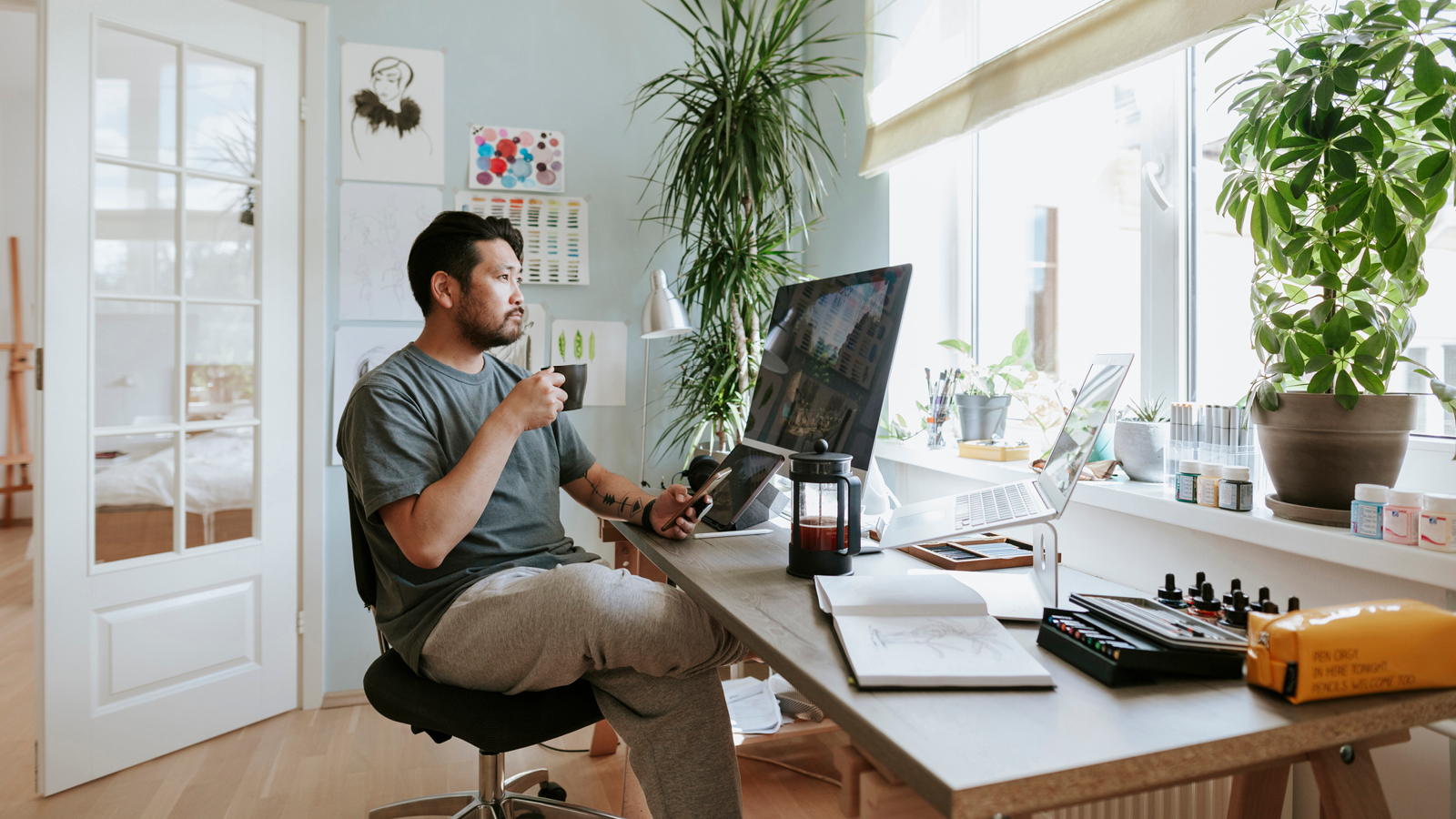
Since the pandemic, WFH has become the norm for many, blurring the lines between work and leisure time. We look at why taking short breaks during those days at home are essential not just for your job, but also your mental health.
A screaming deadline. An urgent request. Covering for a sick colleague. When responsibilities start to mount up, it can often be difficult to drag yourself away and take a break. And that goes double if, like many of us these days, you find yourself working from home more often.
Yes, the commute may be easier and the dress code significantly more relaxed, but WFH can also have its drawbacks. Because we’re more comfortable in our surroundings, sometimes our brains have difficulty differentiating between the office time and rest time. The result? A much longer working day than normal, and an even more tired you. And that can be a problem.
The importance of being idle
Whether you’re a workaholic or otherwise, it’s important to keep yourself alert, focused and productive throughout the working day. It doesn’t matter how dedicated you are, no-one can sustain being ‘in the zone’ indefinitely. And the best way to keep yourself up there is, you guessed it, to punctuate your day with more breaks.
They may not be as beneficial as taking a holiday, granted, but research has shown that more breaks in your day can help to reduce or prevent stress, maintain your performance better for longer, and reduce exhaustion at the end of the day.1 And the longer the breaks (within reason), the more marked the results.
For example, another study found that a decent lunchtime break where you can totally detach from work may help you overcome that afternoon lull. As can social breaks just chatting with friends to take your mind off your workload.2
How long is too long?
Then of course we come to the slightly stickier question of how many breaks you should be taking during your day, and at what intervals. Thankfully, again, science has provided some possible answers.
Some scientists suggest taking a break every 90 minutes. Others who follow the Pomodoro Technique advocate a 5 minute break every 25 minutes. And some research from Latvia also recommends a break every 52 minutes – although why so specific a number is unclear.
But whatever the optimum timing, one thing everyone agrees on is that taking short breaks during your day can certainly help to keep you happier and healthier at work. How? Because they help you to:
1) Process and retain information
You might not know, but your waking brain has two modes, namely ‘focused’ and diffused’. Focused obviously means you’re switched on and hard at the task in hand. But diffused mode, more of a creative dreamlike state, is just as important to being productive. In fact, some research shows that we solve bigger, curlier problems much better when we’re letting our brain wander a little – during a break, for example.
2) See the bigger picture
Similarly, when you’re obsessed with the minutiae of a task, it can be all too easy to lose sight of the bigger picture. But by stepping back and taking a break, you’re better able to reassess your overall goals and focus on them. Strategy is everything, especially if you’re a manager, so it may even pay to delegate the smaller tasks and keep your eyes on the big prize.
3) Solve problems more creatively
Thoroughness is also often the enemy of creativity, as is overwork. If you’re tired, then you’ll be less likely to make creative connections between elements of your work. But if you take more breaks, your brain will be rested - and more likely to perform at its peak. Much like a professional athlete and their body.
4) Establish healthier habits
If you get stressed when you’re busy, the chances are you won’t be doing yourself any favours physically or mentally. Overwork can also mean unhealthy eating and sleeping habits creep in without you noticing. But if you take more breaks, you have the time to eat better, avoiding those junk foods. And you’ll probably get a better night’s sleep too. No worries!
5) Be more productive
A fresher you means a more productive you. And if you take regular breaks, it can also help you to reduce bigger tasks into a series of mini tasks, giving you the extra urge you need to finish quicker. Plus all those other good things listed above.
To conclude, maybe it’s time to stop thinking about break times as lazy or unproductive. Downtime, especially away from devices, is just as important to your brain and body as worktime. So celebrate doing nothing more often, and try taking a few more breaks. Your health, and your head, will thank you for it.
Reference:
1 https://journals.humankinetics.com/view/journals/jpah/12/1/article-p109.xml
